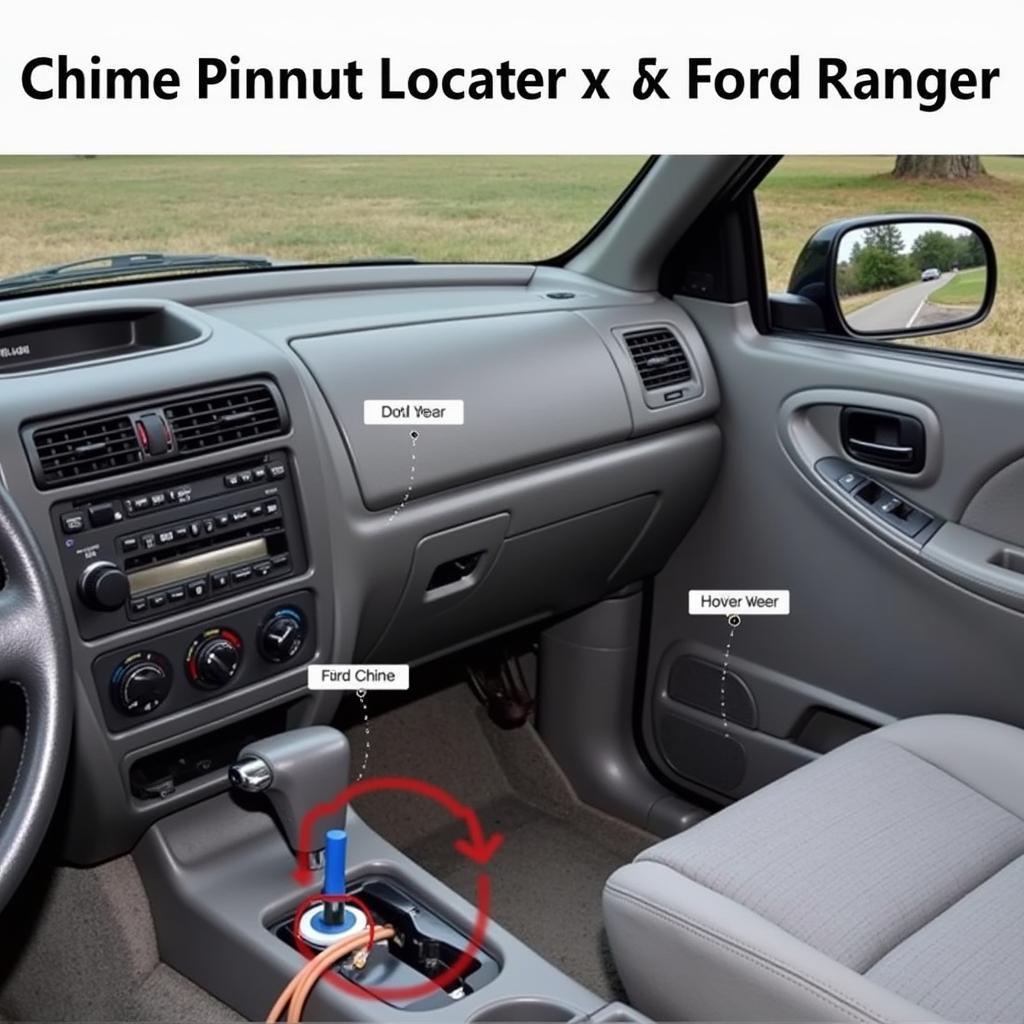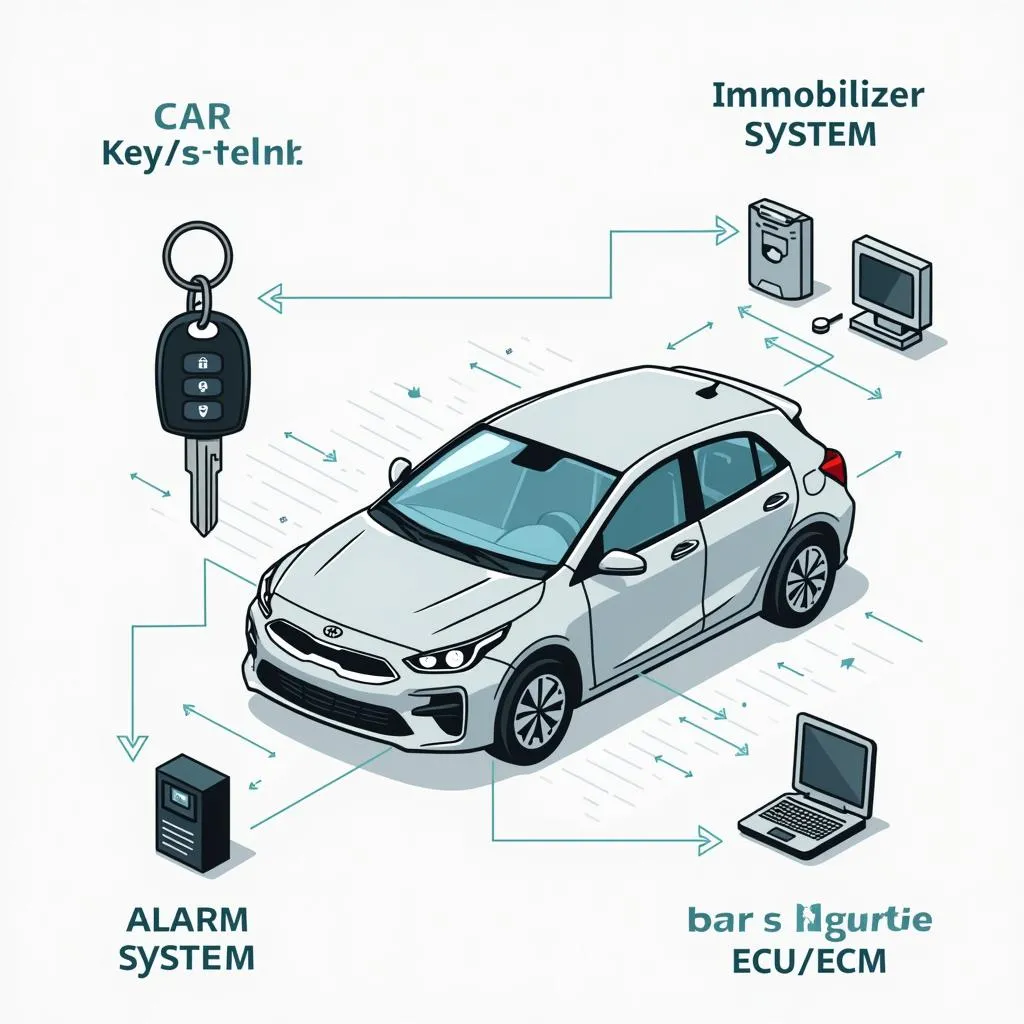The brake warning light on your 2004 Dodge Stratus dashboard is a crucial safety feature designed to alert you of potential issues within your braking system. Ignoring this warning light could lead to reduced braking performance and potentially dangerous driving situations. This comprehensive guide will walk you through the common causes of a 2004 Dodge Stratus brake warning light and provide practical solutions to help you get back on the road safely.
Understanding Your Brake Warning Light
Before delving into the specifics of your 2004 Dodge Stratus, it’s essential to understand how brake warning lights generally function. The warning light is directly connected to several components within your brake system, including:
-
Parking Brake: The most common reason for the light to illuminate is an engaged or partially engaged parking brake. Always ensure your parking brake is fully released before driving.
-
Brake Fluid Level: Low brake fluid is a serious issue. The brake system operates on hydraulic pressure, and a leak or low fluid level can significantly reduce braking power.
-
Brake Pad Wear Sensors: Your Stratus is equipped with sensors that monitor brake pad wear. When the pads wear down to a certain point, the sensor triggers the warning light, indicating it’s time for a replacement.
-
ABS System Malfunction: If there’s a problem with your Anti-lock Braking System (ABS), the brake warning light might illuminate alongside the dedicated ABS warning light.
Common Causes for a 2004 Dodge Stratus Brake Warning Light
While the general reasons mentioned above apply to most vehicles, several causes are specific or more common in a 2004 Dodge Stratus:
-
Brake Fluid Leak: The 2004 Stratus, like many vehicles of its era, can be prone to brake fluid leaks, especially around the master cylinder, brake lines, and wheel cylinders.
-
Faulty Brake Light Switch: The brake light switch, located near the brake pedal, can wear out over time. A malfunctioning switch may not only affect your brake lights but also trigger the warning light.
-
ABS Sensor Issues: The ABS system on the 2004 Stratus can experience sensor problems, particularly with the wheel speed sensors. Debris, corrosion, or sensor failure can disrupt the ABS system and trigger the warning light.
Troubleshooting Your Brake Warning Light
1. Check the Parking Brake: As obvious as it sounds, start by ensuring your parking brake is fully disengaged. Sometimes, a slight bump can partially engage the brake, triggering the light.
2. Inspect Brake Fluid Level: Locate the brake fluid reservoir under the hood. The reservoir will have markings for “Min” and “Max.” If the fluid level is low, add the correct type of DOT 3 or DOT 4 brake fluid as specified in your owner’s manual.
Note: Never drive with low brake fluid. If you’ve added fluid and the level drops quickly, it indicates a leak. Consult a mechanic immediately.
3. Examine Brake Pads: Visually inspect your brake pads through the spaces between the wheel spokes. Look for significant wear or if the pad material is close to the metal backing plate. If the pads appear worn, it’s time for a replacement.
4. Listen for Unusual Noises: While driving at low speeds, listen for any unusual noises coming from the brakes, such as grinding, squealing, or clicking. These sounds often indicate worn brake components.
5. Check for Fluid Leaks: Carefully examine the area around the master cylinder, brake lines, and near the wheels for any signs of brake fluid leaks. Brake fluid is typically clear or amber in color and has a slightly oily texture.
When to Seek Professional Help
If your brake warning light remains illuminated after performing these basic checks or if you suspect a brake fluid leak or ABS issue, it’s crucial to seek professional assistance.
“Addressing brake issues promptly is essential for safety,” advises John Miller, a certified automotive technician with over 20 years of experience. “Ignoring a brake warning light can lead to more extensive and costly repairs down the road.”
Conclusion
The brake warning light in your 2004 Dodge Stratus is a critical safety system component. Addressing the issue promptly ensures your vehicle’s braking performance and, most importantly, your safety and the safety of others on the road. By following the troubleshooting steps outlined in this guide, you can often identify simple solutions. However, never hesitate to consult a qualified mechanic for any concerns or if the problem persists.
FAQs: 2004 Dodge Stratus Brake Warning Light
1. Can I drive my 2004 Dodge Stratus with the brake warning light on?
It’s strongly advised not to drive with the brake warning light illuminated. It indicates a potential problem with your braking system, which could lead to reduced braking performance.
2. How much does it cost to fix a brake warning light on a 2004 Dodge Stratus?
The cost varies depending on the underlying cause. Simple fixes like a brake fluid top-up or brake light switch replacement might cost under $100. However, more complex repairs like brake line replacements or ABS module issues could cost several hundred dollars.
3. How often should I check my brake fluid level?
It’s a good practice to visually inspect your brake fluid level at least once a month.
4. Can I add any type of brake fluid to my 2004 Dodge Stratus?
No, use only the type of brake fluid specified in your owner’s manual, typically DOT 3 or DOT 4. Using the wrong type of fluid can damage your brake system.
5. Do I need to replace all four brake pads at the same time?
While it’s generally recommended to replace brake pads in axle pairs (both front or both rear), your mechanic can assess if all four need replacement based on wear and tear.
6. Where can I find a reliable mechanic to diagnose and repair my 2004 Dodge Stratus brake issues?
Seek recommendations from friends, family, or online reviews to find reputable mechanics specializing in Dodge vehicles in your area.


